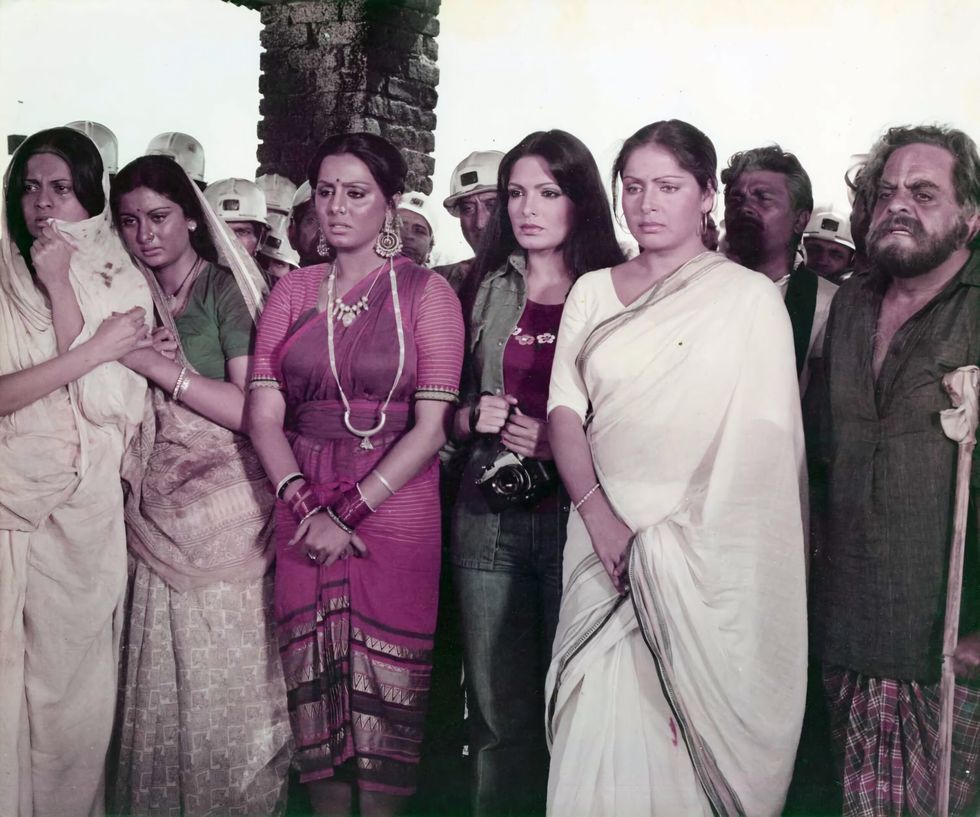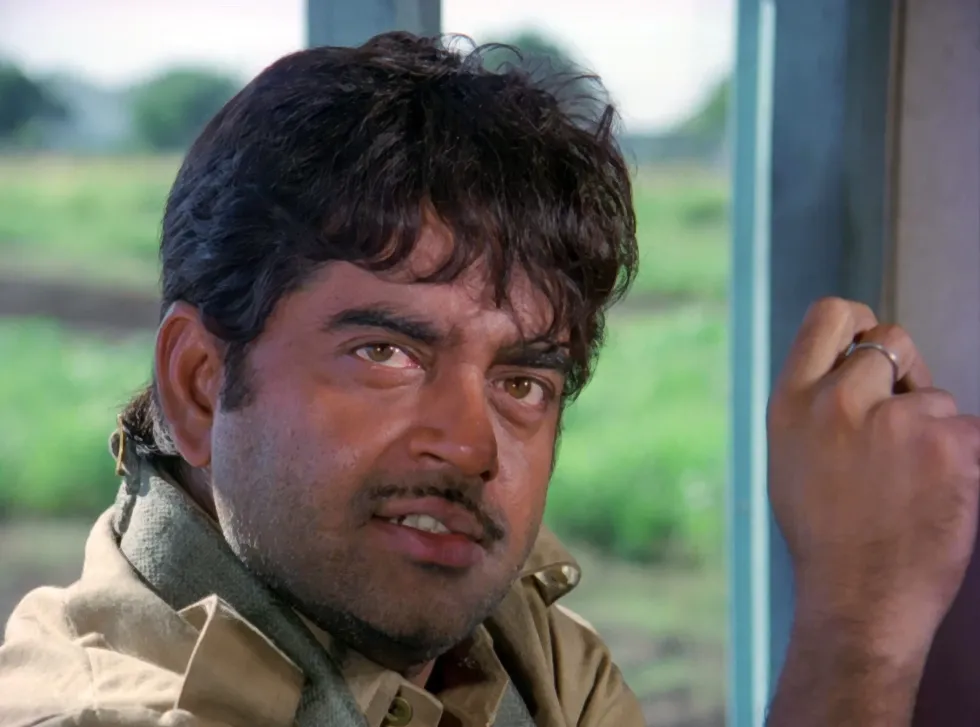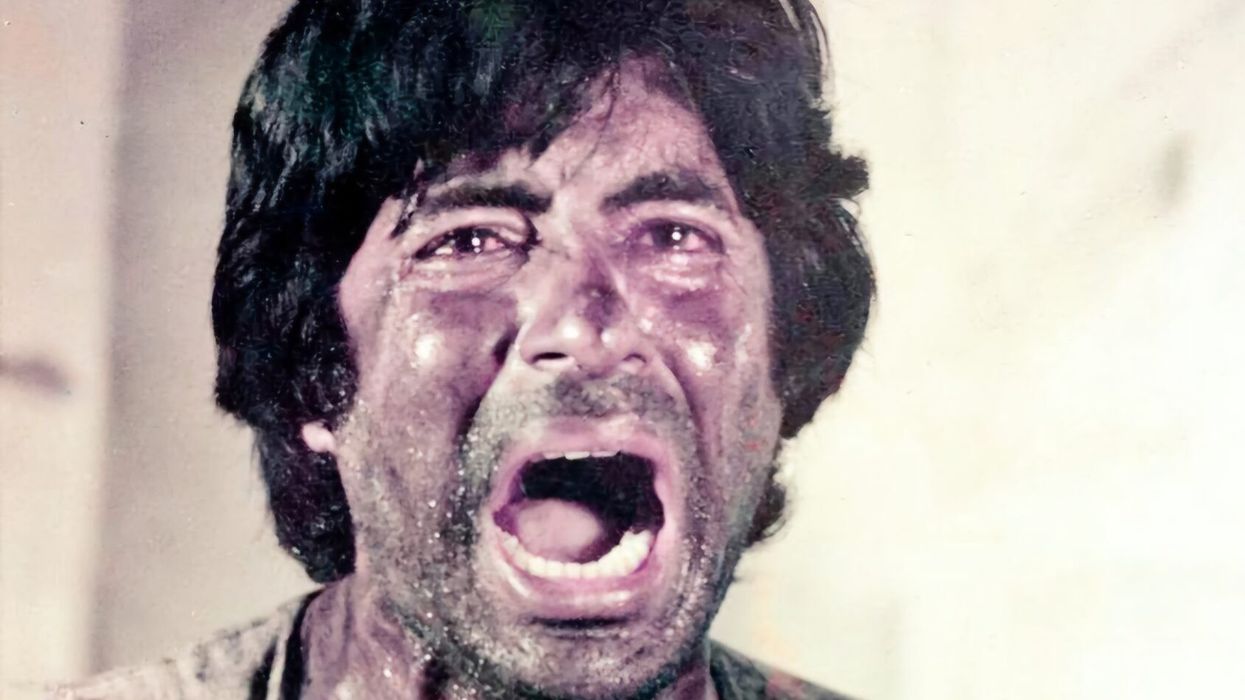BOLLYWOOD’S biggest star of all time, Amitabh Bachchan, first teamed up with the industry’s most successful filmmaker, Yash Chopra, with blockbuster hits Deewaar (1975), Kabhi Kabhie (1976) and Trishul (1978).
Their fourth film together was the under-rated Kaala Patthar, which has become a cult classic since it was released in August 1979.
Chopra brought out the best in his strong star cast that also included Shashi Kapoor, Raakhee, Shatrughan Sinha, Parveen Babi, and Neetu Singh with a story based on a real-life mining disaster.

True story: Kaala Patthar had added gravitas because it was based on the true story of a 1975 disaster that took place in Chasnala (near Dhanbad), where 375 miners were killed after an explosion caused flooding in a coalmine. The ace director added layers to the real-life tragedy by weaving together several stories of protagonists seeking some kind of redemption. This resulted in the classic masterpiece finding a middle-ground between reality and fiction. Interestingly, Amitabh Bachchan’s first job before joining films was in a coal department, and he actually worked in the Dhanbad and Asansol mines.
Amitabh Bachchan: Although big-thinking filmmaker Chopra assembled a strong cast, Kaala Patthar was Bachchan’s show all the way. He played his author-backed role of an ex-navy captain fighting his inner demons to perfection. The pain and rage in his heart exploded during lone scenes, verbal confrontations, and key action sequences. He also spoke intensely, yet subtly, through his eyes in every frame. The film’s posters and stills alone reveal his unmatched towering presence in the film. His naturally magnificent and electrifying performance proved why he always stood tall as the king of Indian cinema.
Multi-starrer: The film brought together some of the most sought-after artists in commercial Hindi cinema with Amitabh Bachchan, Shatrughan Sinha, Shashi Kapoor, Raakhee, Parveen Babi and Neetu Singh. There were also guest appearances from Sanjeev Kumar and Poonam Dhillon. Prem Chopra, Sharat Saxena, Krishna Manmohan, Yunus Parvez, Satyen Kappu, Gita Siddharth, Sudha Chopra, Iftikhar, and Madan Puri were some of the many added to the impressive ensemble cast. Also, it was rare for seniority to be shown respect even then. Bachchan despite being the biggest star in the film and industry was gracefully credited below Shashi Kapoor and Raakhee.
Dialogues: Although visually powerful, there were great dialogues throughout the movie. Despite Bachchan’s character’s broodiness, he delivered powerful replies and monologues in the film, including his surprise outburst in English “My pain is my destiny, and I can’t avoid it”. Shatrughan Sinha, too, known for his elaborate insults and cocky sermons delivered the unforgettable line “teesre baadshah hum hain” (I’m the third king) – perhaps one of the most memorable dialogues of his career.
Performances: Each lead was on top of their game, playing their characters to the fullest. Sinha delivered one of his career-best performances and proved a worthy opponent to the power-packed Bachchan role. Shashi Kapoor as the sharp, jolly and tactful engineer became the bridge between the warring Bachchan and Sinha. Although it was a male-dominated story of miners, the females also had strong roles with Raakhee, Parveen Babi and Neetu Singh playing contrasting characters that added multiple layers to Kaala Patthar. They all essayed their roles convincingly. Bachchan, Sinha and Singh earned Filmfare nominations for best actor, best supporting actor, and best supporting actress, respectively for their performances.
Rulebreaker: Whether it was not giving the hero a flashy entry scene, presenting a bleak landscape, or delivering a story that was decidedly different to all other commercial Bollywood films being made at the time, Kaala Patthar did things differently. This not only offered audiences something new but also enabled it to be a performance driven film filled with onscreen moments not seen before.

Realism: The film being based on an actual disaster meant that it needed to look real, which doesn’t always happen in larger-than-life commercial Hindi cinema. But with his story set in a mining village, Chopra presented the dark reality faced by labourers in a convincing backdrop. Poverty, susceptibility to injury, death, grief, hopelessness and how it is handled in permanently dire situations were illustrated in the film. This was a far cry from his signature colourful escapist movies in exotic locations. The filmmaker dared to be different by staying as true to real life as possible.
Emotions: The gritty drama exposed the dark side of the human mind and brilliantly explored it through overlapping emotions like greed, fear, guilt, anguish, deception, desperation, and survival instincts. Chopra also blended in the three parallel love stories, all interestingly different from each other, seamlessly.
Unity: One of this film’s greatest aspects is the togetherness shown by all the miners and their families. This includes scenes of supporting small businesses, the more affluent characters coming together to participate in a poor deceased miner’s daughter’s wedding and every main character celebrating a small victory with the Dhoom Mache Dhoom song, with the whole village. The truck driver was always on hand for the locals, especially in the climax. Despite being enemies, the characters played by Bachchan and Sinha come together during the crisis moment in the climax. These unifying scenes added a heart-warming aspect to Kaala Patthar.
Music: The uplifting soundtrack in the disaster movie gave Rajesh Roshan a nomination for best music director. The energetic Ek Raasta Hain Zindagi gave Shashi Kapoor a fabulous entry and Kishore Kumar a nomination for best male playback singer. The soothing Jag Gaya Jag Gaya by Mahendra Kapoor was continuously inspirational in various portions of the film, and provided thought-provoking lyrics calling for love, peace, and harmony.
Direction: Chopra showed just why he was a master director with a sleekly made movie. The expert storyteller brought the smart screenplay from Salim Javed to life. He showed technical precision and brought out great performances from his accomplished cast. He captured the claustrophobic aspects and delivered a nail-biting climax. Not surprisingly Kaala Patthar earned Filmfare nominations for best film, best director and best story.
Timeless: Kaala Patthar may be 45 years old, but many of the themes, including exploitation of workers and need for unity, remain relevant today. The emotions experienced by diverse protagonists are still relatable on a human level. This makes it a timeless movie that deserves more love than it has received and why we celebrate it.



